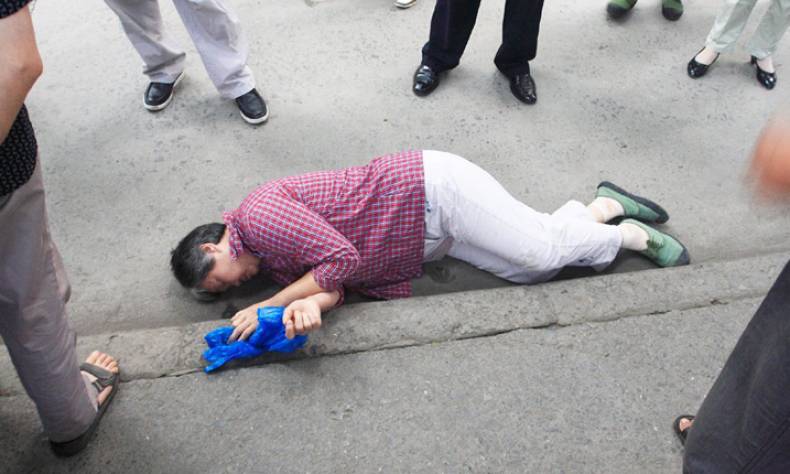
Chinese Company Offers “Help the Elderly” Insurance to Combat Scams
So a priest, a Levite, and a Samaritan walk down a road…heard this one before? Luke 10:29-37? Fine, so it’s not a joke. No, the now-famous parable for the Bible lesson of “love they neighbor” tells of three men walking separately down the Jerusalem-to-Jericho road, each coming across a man injured, bloodied, and lying on the road after being robbed by bandits. The first two men cross the road so to avoid the poor soul and pass by, while the third, the now-named Good Samaritan, stops and gives his assistance.
If there is one lesson to be learned from this, it is that the first two men must not have had “Help the Elderly” insurance.
Available for sale since October 16 on Alipay, Chinese altruists can now be protected against scam artists seeking to take advantage of naïve do-gooders with an insurance plan from Sinosafe Insurance (Side note: does everything China-related have to use the prefix “Sino?”) at the low annual cost of 3 yuan ($0.47). What, you say, insurance against scams that target helping hands? Unfortunately, such is the case.
China has been plagued in recent years by a scourge of elderly scam artists that prey upon the few remaining non-cynics in China by “falling” then accusing any would-be helper of knocking them down. The bemused Good Samaritan is then extorted on the spot for quick money as the threats of police involvement get louder. It is a common con that has firmly rooted itself in the pantheon of Chinese scams that one must watch out for, along with the tea house ruse and the taxi driver fake money swap.
Perpetrators of the so-called “broken vase” scam can come from all woks of life, a non-gender specific racket executed by swindlers of all ages, but it is when the shakedown involves elderly con artists that people tend to get the most upset. And swindlers will exist in any society, but why do many of this ilk in China involve the elderly?
It could be that the elderly fraudster is struggling to make ends meet from the very basic pension paid (depending on where in China that person is, with wide variance); maybe their evolved family structure no longer provides enough support, with more children living far from home and their parents; or maybe they have taken notice of similar scams in the past and noticed that in these high-profile cases the burden of proof falls on the defendant and not the plaintiff.
Bear with me here: under Chinese tort law, the foremost stipulation of the law is fault: he or she who is determined to be at fault will be liable. But if fault cannot be proved, then the secondary determiner is what is known as “presumption of fault,” and this is where the burden of proof shifts from the plaintiff (the knocked down) to the defendant (the purported knockee).
So imagine this scenario: an elderly woman illegally crosses a guardrail in the middle of the road and falls, claiming that she was hit by a car. She then sues the driver of the car for damages. Yet the driver states that he had only stopped to help the woman, something that is corroborated by police examination of the scene, where it is determined that the vehicle had stopped 2.4 meters from the fallen woman. Absent of witnesses, who is to be believed? Who would you believe?
This case happened in 2009, when Ms. Wang Xiuzhi suffered multiple bone fractures as a result of whatever happened that fateful day and sued the driver of the car, Xu Yunhe. Xu was found to be 40 percent liable and ordered to pay over 100,000 yuan in damages. This, along with the Peng Yu case of 2007, is considered one of major reasons many in China are wary of lending a hand. (In the Peng Yu case, the judge actually determined that Peng only helped because he must’ve hurt the injured in some way in the first place.)
Unfortunately, this judge’s line of reasoning is common and is still used today despite increasingly vocal calls for a national Good Samaritan law that reverses the burden of proof and places it on the person who has supposedly been injured and making accusations of liability. Beijing has supposedly drafted a law to protect would-be Good Samaritans in the capital, and if Beijing is doing so then perhaps a national rollout is not far behind.
Until then, perhaps it is time to purchase some Help the Elderly insurance.
 Facebook
Facebook
 Twitter
Twitter
 Linkedin
Linkedin
 Google +
Google +










